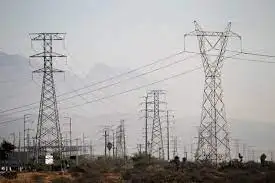CFL industry launches quality identification plan
MANILA, PHILIPPINES - The worldÂ’s three largest lighting companies, Philips, OSRAM and General Electric, today signed a pact to establish standards for compact fluorescent lamps (CFL) in an effort to rid the Asian market of shoddy energy-saving lights.
Under the new agreement, lighting suppliers in Asia will develop performance levels to rate CFL quality, a system for product marking, and a regional database so consumers can identify which CFLs meet quality standards.
Half the CFLs in Asia are substandard – producing less light or burning out more quickly than advertised – so establishing performance standards is vital for the continued growth of CFLs, which have potential sales of $7 billion annually in Asia based on current usage and market projections. Consumer dissatisfaction with shoddy CFLs is threatening the energy-saving lamps’ spectacular growth in Asia.
“Having a common quality system is essential to ensure long-term consumer satisfaction and to strengthen the market for these energy-saving lamps,” said Orestes Anastasia, Regional Environment Advisor for the U.S. Agency for International Development (USAID), which released the report on poor-quality CFLs late last year.
The accord, called the “Manila Compact,” was signed on the sidelines of the Asia Clean Energy Forum, sponsored by the Asian Development Bank (ADB) and USAID.
Lighting companies Zhongshan Opple Lighting of the PeopleÂ’s Republic of China and Energy Mad of New Zealand co-signed the memorandum, along with lighting councils from Indonesia, the Philippines and Australia, USAID, the Efficient Lighting Initiative, an international non-governmental organization ,and AustraliaÂ’s Department of Environment, Water, Heritage and the Arts.
The new Asian system will be compatible with existing quality certification systems, such as the Efficient Lighting Initiative and the UK’s Energy Saving Trust, both used by the Australian government. The Asian system will also denote whether lamps meet various quality criteria, ranking them as “good”, “better” or “best”.
The supplier network is being supported by the USAID and the Australian government as part of a regional climate initiative known as the Asia-Pacific Partnership on Clean Development and Climate (APP). APP partner countries include Australia, Canada, the PeopleÂ’s Republic of China, India, Japan, Korea, and the United States.
Related News

Electrifying Manitoba: How hydro power 'absolutely revolutionized' the province
WINNIPEG - The first electric light in Manitoba was turned on in Winnipeg in 1873, but it was a century ago this year that the switch was flipped on a decision that would bring power to the fingertips of people across the province.
On March 12, 1873, Robert Davis — who owned the Davis House hotel on Main Street, about a block from Portage Avenue — used an electric arc light to illuminate the front of his building, according to A History of Electric Power in Manitoba, published by Manitoba Hydro.
That type of light used an an inert gas in a…




